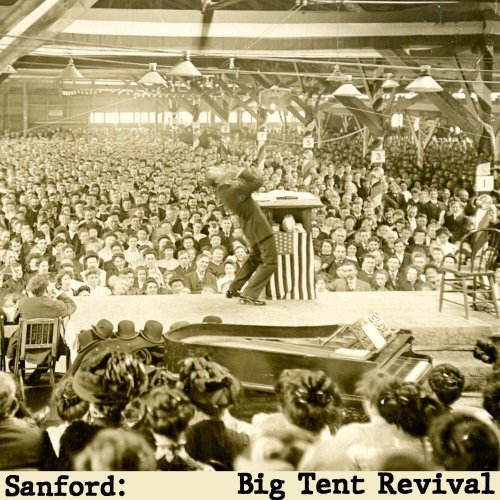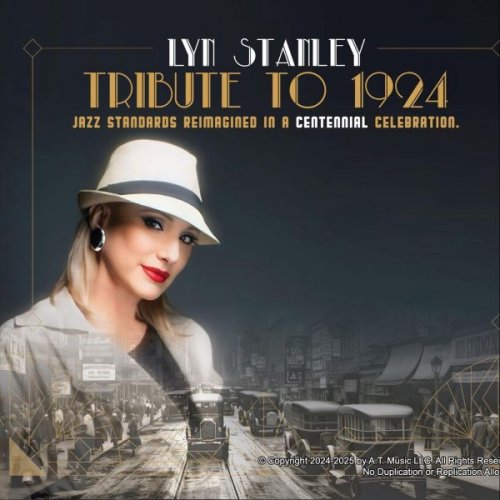Roberta Flack - The Best of Roberta Flack (1971)
- 02 Jul, 20:44
- change text size:
Facebook
Twitter

Artist: Roberta Flack
Title: The Best of Roberta Flack
Year Of Release: 1971
Label: FM Records
Genre: Soul, Jazz, R&B, Smooth Soul
Quality: Mp3 320 / Flac (tracks)
Total Time: 01:28:22
Total Size: 215/508 Mb
WebSite: Album Preview
Tracklist:Title: The Best of Roberta Flack
Year Of Release: 1971
Label: FM Records
Genre: Soul, Jazz, R&B, Smooth Soul
Quality: Mp3 320 / Flac (tracks)
Total Time: 01:28:22
Total Size: 215/508 Mb
WebSite: Album Preview
01. Compared To What 5:17
02. Angelitos Negros 6:56
03. Our Ages Or Our Hearts 6:10
04. I Told Jesus 6:10
05. Hey, That's No Way To Say Goodbye 4:08
06. The First Time Ever I Saw Your Face 5:23
07. Tryin' Times 5:08
08. Ballad Of The Sad Young Men 7:00
09. Go Up Moses 5:23
10. Bridge Over Troubled Water 7:16
11. Sunday And Sister Jones 5:00
12. See You Then 3:42
13. Will You Still Love Me Tomorrow 4:07
14. To Love Somebody 6:43
15. Let Them Talk 3:54
16. Sweet Bitter Love 6:05
Roberta Flack was one of the most distinctive artists of her time, foremost a creative interpreter whose subtle and masterful welding of many genres -- from gospel, R&B, and jazz to folk and pop -- was set further apart by her supremely dulcet yet impassioned voice. The singer/songwriter and keyboardist appeared near the end of the '60s with First Take (1969) and continued to impress with Chapter Two (1970) and Quiet Fire (1971) before her impeccably wrought version of Ewan MacColl's "The First Time Ever I Saw Your Face," featured in the film Play Misty for Me, brought her to wider attention and the top of the Billboard Hot 100. From that point on, Flack regularly hit the upper reaches of the pop, R&B, and adult contemporary charts, duetting with Donny Hathaway on "Where Is the Love," scoring additional number one pop hits with "Killing Me Softly with His Song" and the self-produced "Feel Like Makin' Love," and winning a total of four Grammys. Flack's ballads helped lay the foundation for quiet storm, a radio format coincidentally birthed at her alma mater, Howard University. She continued to sustain playlists with "The Closer I Get to You" (1977), "Tonight, I Celebrate My Love" (1983), and "Set the Night to Music" (1991), additional crossover hits recorded respectively with Hathaway, Peabo Bryson, and Maxi Priest. By the time she released her final studio LP, the Beatles tribute Let It Be Roberta (2012), Flack had scored 11 Top 40 singles and collected gold, platinum, and multi-platinum certifications for eight of her albums. She died in 2025, at the age of 88, five years after she accepted a Grammy Lifetime Achievement Award.
Roberta Cleopatra Flack was born in Black Mountain, North Carolina, and from the age of five was raised in Arlington, Virginia. Her mother played piano and organ in church, while her father played piano and harmonica. At a very young age, Flack followed in her parents' footsteps, providing accompaniment on hymns such as Thomas A. Dorsey's "Take My Hand, Precious Lord" at the African Methodist Episcopal Zion church she attended. Formal piano studies coincided with her expanding musical interest that, in addition to traditional and contemporary gospel, encompassed classical, jazz, R&B, and pop. Flack took second prize in a state competition among 13-year-old Black pianists, and only two years later secured a full music scholarship to nearby Howard University in Washington, D.C. She studied piano and voice, and in 1958 earned a degree in music education.
Flack put aside graduate studies after her father's death and went into teaching, first in North Carolina, then back in D.C., and also taught private piano lessons. At night, she performed in D.C. night clubs and eventually landed a gig playing three sets five nights a week at Mr. Henry's, attracting audience members such as Burt Bacharach, Dionne Warwick, and Johnny Mathis. When jazz pianist and vocalist Les McCann caught her set at a benefit for the Inner City Ghetto Children's Library Fund, he facilitated an audition with Joel Dorn at Atlantic Records. Dorn signed Flack and either produced or co-produced Flack's first four studio LPs.
First Take marked Flack's recorded debut in June 1969. The album was recorded in ten hours with bassist Ron Carter, drummer Ray Lucas, and guitarist Bucky Pizzarelli, and with strings and horns arranged by William Fischer. "Compared to What," a protest song written by Gene McDaniels and originally recorded by Les McCann, was issued as a single in promotion of the album. (The same month the album was released, McCann and Eddie Harris performed "Compared to What" at the Montreux Jazz Festival, documented later that year on Swiss Movement.) The following August, after she sang and played piano on McCann's Comment, Flack delivered Chapter Two. The set was co-produced by King Curtis and arranged by Donny Hathaway, who met Flack at Howard and co-wrote two songs on the debut. While the McDaniels-written single "Reverend Lee" and a version of Jimmy Webb's "Do What You Gotta Do" proved to be most popular, Chapter Two was also highlighted by a languid if powerful rendition of "Gone Away," written a couple years earlier by Hathaway and Curtis Mayfield for Mayfield's group, the Impressions.
In 1971, Flack scored her first hit singles by duetting with Hathaway on updates of Carole King's "You've Got a Friend" and Phil Spector, Barry Mann, and Cynthia Weil's "You've Lost That Lovin' Feelin'" (popularized by the Righteous Brothers). The former reached number eight on the R&B chart, crossed into the Top 40 of the pop chart (peaking at number 29), and was eventually nominated for a Grammy in the category of Best R&B Vocal Performance by a Duo or Group. That November, just after the latter single entered the charts, Flack released Quiet Fire. A strong opening statement was made with "Go Up Moses," Flack's first commercially released composition, written with Joel Dorn and the Reverend Jesse Jackson. The album's only single, King and Gerry Goffin's "Will You Still Love Me Tomorrow," began the singer's hold on Billboard's adult contemporary chart. After the song ran its course, Atlantic issued "The First Time Ever I Saw Your Face," off First Take, as a single. Clint Eastwood had included Flack's Ewan MacColl cover in his psychological thriller Play Misty for Me. The version subsequently topped the Billboard Hot 100 for six weeks, also reached the top of the adult contemporary chart, and went to number four on the R&B survey. The parent album was sent to the top of the pop and R&B charts. Remarkably, the emergence of "The First Time Ever I Saw Your Face" coincided with the 1972 release of Roberta Flack & Donny Hathaway, containing the duo's two preceding hit duets and a third one, "Where Is the Love," which crowned the R&B and adult contemporary charts and topped out at number five on the Hot 100. At the 15th annual Grammy Awards, "The First Time Ever I Saw Your Face" won Record of the Year, and "Where Is the Love" took the award for Best Pop Vocal Performance by a Duo, Group, or Chorus. Additionally, Quiet Fire was up for Best Pop Vocal Performance, Female.
Flack's hot streak continued with her fourth album, Killing Me Softly, issued in August 1973. The title number, written by Charles Fox, Norman Gimbel, and the uncredited Lori Lieberman (who first recorded it), had a four-week reign atop the Hot 100 and earned Flack her second consecutive Grammy for Record of the Year. The follow-up single "Jesse," written by Janis Ian, gave Flack her fifth Top 40 hit, while a ten-minute version of Leonard Cohen's "Suzanne" proved that she still had a knack for stretching out. Flack spent over a year on her next album, Feel Like Makin' Love, and in the process ended up producing under the pseudonym Rubina Flake, after Joel Dorn distanced himself and intended co-producer Gene McDaniels likewise opted to not see it through. Having produced Atlantic albums by Marion Williams, Donal Leace, and Wayne Davis, Flack was not new to the role but struggled when it came to her own sessions. The LP's March 1975 release was somewhat anticlimactic, as the McDaniels-penned title song, a number one pop, R&B, and adult contemporary hit, preceded it by ten months. Next, Flack teamed with McDaniels and Joe Ferla (whose credits as an engineer included Donny Hathaway's Extension of a Man) to co-produce Blue Lights in the Basement, its title a reference to house parties for intimate dancing. James Mtume and Reggie Lucas, accomplished jazz musicians who were in Flack's band and looking to further diversify, co-wrote "The Closer I Get to You," a sparking duet with Hathaway that became Flack's third number one R&B single (number two pop, number three adult contemporary).
Due to the long gap between her sixth and seventh albums, Flack was pressured by Atlantic to quickly come up with her eighth one, and was likewise pushed to record the theme song and other material for the film If Ever I See You Again, writer/director/producer Joe Brooks' follow-up to You Light Up My Life. Brooks, Joe Ferla, and Flack co-produced the parent album, Roberta Flack, and "If I See You Again" was easily its biggest single, another number one hit on the adult contemporary chart (number 24 pop, number 37 R&B). Flack was in the middle of recording a second album of duets with Donny Hathaway when her singing partner fell from the balcony of his hotel room. The tragedy was ruled a suicide. Devastated, Flack completed the album, titled Roberta Flack Featuring Donny Hathaway, and issued it in March 1980. A pair of joyous Top Ten R&B hits resulted with "You Are My Heaven," a ballad written by Stevie Wonder and album co-producer Eric Mercury, and the uptempo "Back Together Again," a James Mtume/Reggie Lucas composition that featured an all-star group of backing vocalists including Wonder, Luther Vandross, Gwen Guthrie, and Jocelyn Brown. Flack and Hathaway were nominated for two more Grammys. Before the end of the year, Flack and Peabo Bryson recorded and released a joint double live album, Live & More, alternating between the singers' solo hits and renditions of Flack-Hathaway material.
Flack and Bryson continued to be a formidable duo. Flack's soundtrack for the 1981 film Bustin' Loose, starring Richard Pryor and Cicely Tyson, included the Bryson collaboration "Ballad for D.," an homage to Donny Hathaway. After the 1982 release of Flack's I'm the One, featuring the number 13 pop hit "Making Love" -- another film theme, this one composed by Burt Bacharach, Carole Bayer Sager, and Bruce Roberts -- the two singers paired back up for Born to Love. Released in 1983, the album led with "Tonight I Celebrate My Love," a number 16 pop hit (Top Ten R&B and adult contemporary) written by Gerry Goffin and Michael Masser.
Over the next several years, Flack performed extensively, including a tour with Miles Davis, and worked on a couple studio projects -- a set of early R&B covers and a Nat King Cole tribute -- that didn't reach fruition. In the thick of the new jack swing era, she released Oasis and Set the Night to Music, albums respectively issued in 1988 and 1991. "Oasis" itself, written by Mark Stephens and producer/bassist Marcus Miller, returned Flack to the top of the R&B chart, and the Ashford & Simpson collaboration "Uh-Uh Ooh-Ooh Look Out (Here It Comes)" gave her a number one club hit. Another song on Oasis, "And So It Goes," was written with longtime friend Maya Angelou. Set the Night to Music, with a couple subtle exceptions, also stuck to slick and sophisticated contemporary R&B without a hip-hop influence. The title song paired Flack with Maxi Priest (then riding high off "Close to You") and was Flack's sixth and final Top Ten pop hit.
The only other proper studio album Flack released in the '90s was 1994's Roberta, a set of pop, soul, and jazz covers that saw her connect with three production teams: Katreese and Jerry Barnes (aka Juicy), longtime musical director Barry Miles and Shane Keister, and Bernard Wright (Flack's godson) and Richard Keller. In 1997, on the heels of Fugees' hugely successful cover of "Killing Me Softly with His Song," Flack also released The Christmas Album, and during the same decade, she cut two covers LPs for the Japanese market, namely Stop the World and Friends. Her final album, Let It Be Roberta, was a Beatles tribute released in 2012. She occasionally performed and recorded from then on, contributing "Running" for the 2018 documentary 3100: Run and Become, and collaborating in 2024 with Valerie Simpson and producer/musician Ebonie Smith on "She Came Home Blameless," based on the Maya Angelou poem "The Mothering Blackness." Between those two sessions, Flack received a Grammy Lifetime Achievement Award and was among the first inductees into the Women Songwriters Hall of Fame. A couple years before her final recording, Flack was diagnosed with amyotrophic lateral sclerosis (aka ALS and Lou Gehrig's Disease). She died of cardiac arrest on February 24, 2025.~Andy Kellman
Roberta Cleopatra Flack was born in Black Mountain, North Carolina, and from the age of five was raised in Arlington, Virginia. Her mother played piano and organ in church, while her father played piano and harmonica. At a very young age, Flack followed in her parents' footsteps, providing accompaniment on hymns such as Thomas A. Dorsey's "Take My Hand, Precious Lord" at the African Methodist Episcopal Zion church she attended. Formal piano studies coincided with her expanding musical interest that, in addition to traditional and contemporary gospel, encompassed classical, jazz, R&B, and pop. Flack took second prize in a state competition among 13-year-old Black pianists, and only two years later secured a full music scholarship to nearby Howard University in Washington, D.C. She studied piano and voice, and in 1958 earned a degree in music education.
Flack put aside graduate studies after her father's death and went into teaching, first in North Carolina, then back in D.C., and also taught private piano lessons. At night, she performed in D.C. night clubs and eventually landed a gig playing three sets five nights a week at Mr. Henry's, attracting audience members such as Burt Bacharach, Dionne Warwick, and Johnny Mathis. When jazz pianist and vocalist Les McCann caught her set at a benefit for the Inner City Ghetto Children's Library Fund, he facilitated an audition with Joel Dorn at Atlantic Records. Dorn signed Flack and either produced or co-produced Flack's first four studio LPs.
First Take marked Flack's recorded debut in June 1969. The album was recorded in ten hours with bassist Ron Carter, drummer Ray Lucas, and guitarist Bucky Pizzarelli, and with strings and horns arranged by William Fischer. "Compared to What," a protest song written by Gene McDaniels and originally recorded by Les McCann, was issued as a single in promotion of the album. (The same month the album was released, McCann and Eddie Harris performed "Compared to What" at the Montreux Jazz Festival, documented later that year on Swiss Movement.) The following August, after she sang and played piano on McCann's Comment, Flack delivered Chapter Two. The set was co-produced by King Curtis and arranged by Donny Hathaway, who met Flack at Howard and co-wrote two songs on the debut. While the McDaniels-written single "Reverend Lee" and a version of Jimmy Webb's "Do What You Gotta Do" proved to be most popular, Chapter Two was also highlighted by a languid if powerful rendition of "Gone Away," written a couple years earlier by Hathaway and Curtis Mayfield for Mayfield's group, the Impressions.
In 1971, Flack scored her first hit singles by duetting with Hathaway on updates of Carole King's "You've Got a Friend" and Phil Spector, Barry Mann, and Cynthia Weil's "You've Lost That Lovin' Feelin'" (popularized by the Righteous Brothers). The former reached number eight on the R&B chart, crossed into the Top 40 of the pop chart (peaking at number 29), and was eventually nominated for a Grammy in the category of Best R&B Vocal Performance by a Duo or Group. That November, just after the latter single entered the charts, Flack released Quiet Fire. A strong opening statement was made with "Go Up Moses," Flack's first commercially released composition, written with Joel Dorn and the Reverend Jesse Jackson. The album's only single, King and Gerry Goffin's "Will You Still Love Me Tomorrow," began the singer's hold on Billboard's adult contemporary chart. After the song ran its course, Atlantic issued "The First Time Ever I Saw Your Face," off First Take, as a single. Clint Eastwood had included Flack's Ewan MacColl cover in his psychological thriller Play Misty for Me. The version subsequently topped the Billboard Hot 100 for six weeks, also reached the top of the adult contemporary chart, and went to number four on the R&B survey. The parent album was sent to the top of the pop and R&B charts. Remarkably, the emergence of "The First Time Ever I Saw Your Face" coincided with the 1972 release of Roberta Flack & Donny Hathaway, containing the duo's two preceding hit duets and a third one, "Where Is the Love," which crowned the R&B and adult contemporary charts and topped out at number five on the Hot 100. At the 15th annual Grammy Awards, "The First Time Ever I Saw Your Face" won Record of the Year, and "Where Is the Love" took the award for Best Pop Vocal Performance by a Duo, Group, or Chorus. Additionally, Quiet Fire was up for Best Pop Vocal Performance, Female.
Flack's hot streak continued with her fourth album, Killing Me Softly, issued in August 1973. The title number, written by Charles Fox, Norman Gimbel, and the uncredited Lori Lieberman (who first recorded it), had a four-week reign atop the Hot 100 and earned Flack her second consecutive Grammy for Record of the Year. The follow-up single "Jesse," written by Janis Ian, gave Flack her fifth Top 40 hit, while a ten-minute version of Leonard Cohen's "Suzanne" proved that she still had a knack for stretching out. Flack spent over a year on her next album, Feel Like Makin' Love, and in the process ended up producing under the pseudonym Rubina Flake, after Joel Dorn distanced himself and intended co-producer Gene McDaniels likewise opted to not see it through. Having produced Atlantic albums by Marion Williams, Donal Leace, and Wayne Davis, Flack was not new to the role but struggled when it came to her own sessions. The LP's March 1975 release was somewhat anticlimactic, as the McDaniels-penned title song, a number one pop, R&B, and adult contemporary hit, preceded it by ten months. Next, Flack teamed with McDaniels and Joe Ferla (whose credits as an engineer included Donny Hathaway's Extension of a Man) to co-produce Blue Lights in the Basement, its title a reference to house parties for intimate dancing. James Mtume and Reggie Lucas, accomplished jazz musicians who were in Flack's band and looking to further diversify, co-wrote "The Closer I Get to You," a sparking duet with Hathaway that became Flack's third number one R&B single (number two pop, number three adult contemporary).
Due to the long gap between her sixth and seventh albums, Flack was pressured by Atlantic to quickly come up with her eighth one, and was likewise pushed to record the theme song and other material for the film If Ever I See You Again, writer/director/producer Joe Brooks' follow-up to You Light Up My Life. Brooks, Joe Ferla, and Flack co-produced the parent album, Roberta Flack, and "If I See You Again" was easily its biggest single, another number one hit on the adult contemporary chart (number 24 pop, number 37 R&B). Flack was in the middle of recording a second album of duets with Donny Hathaway when her singing partner fell from the balcony of his hotel room. The tragedy was ruled a suicide. Devastated, Flack completed the album, titled Roberta Flack Featuring Donny Hathaway, and issued it in March 1980. A pair of joyous Top Ten R&B hits resulted with "You Are My Heaven," a ballad written by Stevie Wonder and album co-producer Eric Mercury, and the uptempo "Back Together Again," a James Mtume/Reggie Lucas composition that featured an all-star group of backing vocalists including Wonder, Luther Vandross, Gwen Guthrie, and Jocelyn Brown. Flack and Hathaway were nominated for two more Grammys. Before the end of the year, Flack and Peabo Bryson recorded and released a joint double live album, Live & More, alternating between the singers' solo hits and renditions of Flack-Hathaway material.
Flack and Bryson continued to be a formidable duo. Flack's soundtrack for the 1981 film Bustin' Loose, starring Richard Pryor and Cicely Tyson, included the Bryson collaboration "Ballad for D.," an homage to Donny Hathaway. After the 1982 release of Flack's I'm the One, featuring the number 13 pop hit "Making Love" -- another film theme, this one composed by Burt Bacharach, Carole Bayer Sager, and Bruce Roberts -- the two singers paired back up for Born to Love. Released in 1983, the album led with "Tonight I Celebrate My Love," a number 16 pop hit (Top Ten R&B and adult contemporary) written by Gerry Goffin and Michael Masser.
Over the next several years, Flack performed extensively, including a tour with Miles Davis, and worked on a couple studio projects -- a set of early R&B covers and a Nat King Cole tribute -- that didn't reach fruition. In the thick of the new jack swing era, she released Oasis and Set the Night to Music, albums respectively issued in 1988 and 1991. "Oasis" itself, written by Mark Stephens and producer/bassist Marcus Miller, returned Flack to the top of the R&B chart, and the Ashford & Simpson collaboration "Uh-Uh Ooh-Ooh Look Out (Here It Comes)" gave her a number one club hit. Another song on Oasis, "And So It Goes," was written with longtime friend Maya Angelou. Set the Night to Music, with a couple subtle exceptions, also stuck to slick and sophisticated contemporary R&B without a hip-hop influence. The title song paired Flack with Maxi Priest (then riding high off "Close to You") and was Flack's sixth and final Top Ten pop hit.
The only other proper studio album Flack released in the '90s was 1994's Roberta, a set of pop, soul, and jazz covers that saw her connect with three production teams: Katreese and Jerry Barnes (aka Juicy), longtime musical director Barry Miles and Shane Keister, and Bernard Wright (Flack's godson) and Richard Keller. In 1997, on the heels of Fugees' hugely successful cover of "Killing Me Softly with His Song," Flack also released The Christmas Album, and during the same decade, she cut two covers LPs for the Japanese market, namely Stop the World and Friends. Her final album, Let It Be Roberta, was a Beatles tribute released in 2012. She occasionally performed and recorded from then on, contributing "Running" for the 2018 documentary 3100: Run and Become, and collaborating in 2024 with Valerie Simpson and producer/musician Ebonie Smith on "She Came Home Blameless," based on the Maya Angelou poem "The Mothering Blackness." Between those two sessions, Flack received a Grammy Lifetime Achievement Award and was among the first inductees into the Women Songwriters Hall of Fame. A couple years before her final recording, Flack was diagnosed with amyotrophic lateral sclerosis (aka ALS and Lou Gehrig's Disease). She died of cardiac arrest on February 24, 2025.~Andy Kellman

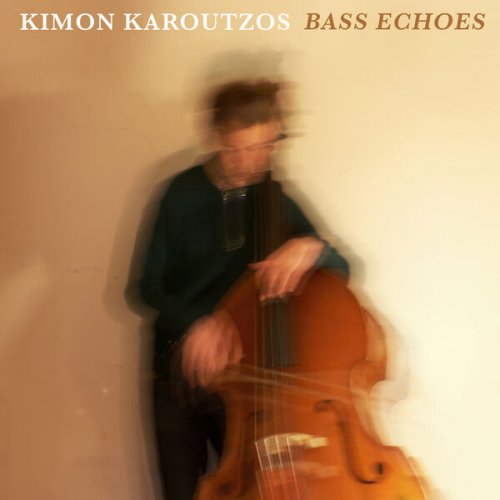
![Jan Harbeck Quartet - Arena (2026) [Hi-Res] Jan Harbeck Quartet - Arena (2026) [Hi-Res]](https://img.israbox.com/img/2026-02/21/ta1geqbunymda1vazij2b7te7.jpg)
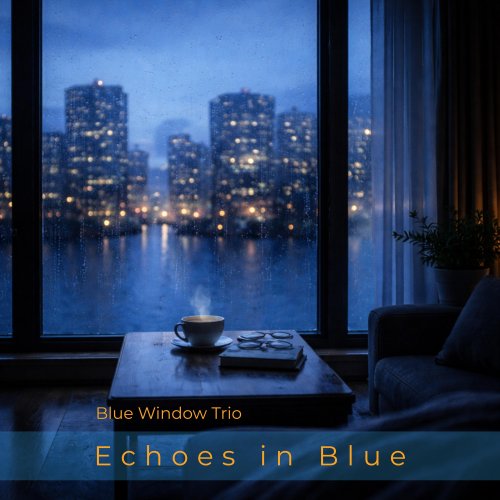
![Dave Slonaker Big Band - Shifty Paradigms (2026) [Hi-Res] Dave Slonaker Big Band - Shifty Paradigms (2026) [Hi-Res]](https://www.dibpic.com/uploads/posts/2026-02/1771506144_eu5h6bbhmvwxe_600.jpg)
![The Three Seas - Antaḥkaraṇa (2026) [Hi-Res] The Three Seas - Antaḥkaraṇa (2026) [Hi-Res]](https://img.israbox.com/img/2026-02/19/uhghtg21m4gkq8nt8lyl1f5dq.jpg)
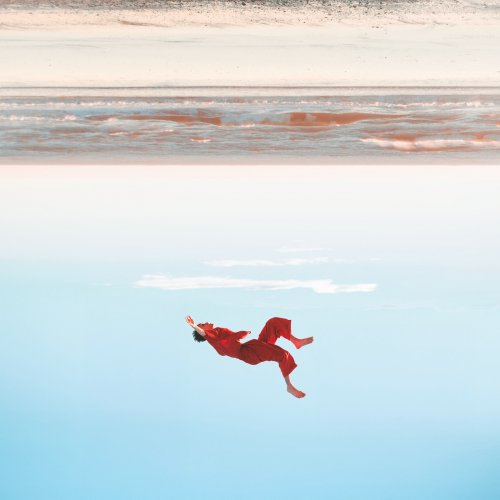
![The Messthetics & James Brandon Lewis - Deface The Currency (2026) [Hi-Res] The Messthetics & James Brandon Lewis - Deface The Currency (2026) [Hi-Res]](https://www.dibpic.com/uploads/posts/2026-02/1771424652_1.jpg)
